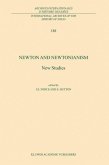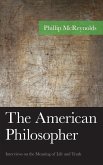Newton's philosophical views are unique and uniquely difficult to categorise. In the course of a long career from the early 1670s until his death in 1727, he articulated profound responses to Cartesian natural philosophy and to the prevailing mechanical philosophy of his day. Newton as Philosopher presents Newton as an original and sophisticated contributor to natural philosophy, one who engaged with the principal ideas of his most important predecessor, René Descartes, and of his most influential critic, G. W. Leibniz. Unlike Descartes and Leibniz, Newton was systematic and philosophical without presenting a philosophical system, but over the course of his life, he developed a novel picture of nature, our place within it, and its relation to the creator. This rich treatment of his philosophical ideas will be of wide interest to historians of philosophy, science, and ideas.
Bitte wählen Sie Ihr Anliegen aus.
Rechnungen
Retourenschein anfordern
Bestellstatus
Storno









